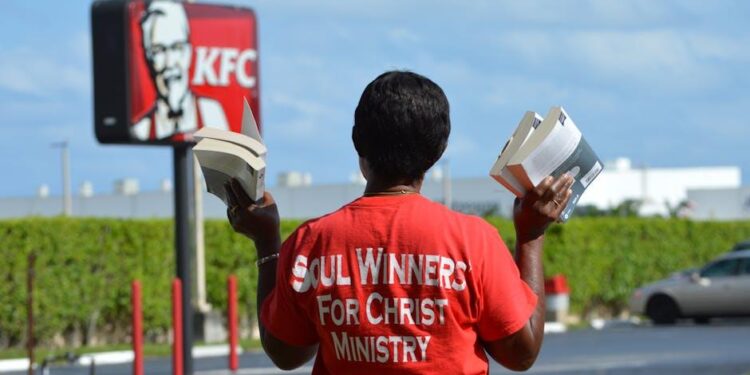Table of Contents
Introduction: The Paradox of a Canceled King
To understand Logan Paul is to confront a paradox at the heart of modern fame. He is not merely a social media personality; he is a living case study in the volatile alchemy of 21st-century celebrity, a figure who committed one of the internet’s most unforgivable sins and yet emerged not just unscathed, but more powerful. The central question of his career is not whether he was wrong—the consensus on that is clear—but how a figure so thoroughly condemned managed to transmute his public execution into a coronation. How did the man who became synonymous with the term “canceled” leverage the very forces meant to destroy him into the foundation of a more formidable, diversified, and lucrative empire than the one he nearly lost?.1
His story defies the simple logic of cause and effect that once governed public life. In a previous era, the transgressions that defined his downfall would have been career-ending. Yet, in the fragmented, attention-driven economy of the digital age, Paul’s journey demonstrates that notoriety and infamy are not liabilities but convertible currencies. His cancellation was not an endpoint but a catalyst—a brutal, necessary market correction that forced a strategic reinvention.3 He did not simply apologize and retreat; he pivoted, diversified, and monetized his own villainy.
This analysis will trace that improbable journey through three distinct acts: the Struggle, the Epiphany, and the Solution. It is a narrative that moves from the reckless hubris of a vlogger chasing clout at any cost to the calculated machinations of a multi-platform entrepreneur who has engineered a business model that may well be immune to the very culture that once sought to erase him. This is not a story of redemption in the traditional sense, but a deep dive into the psychology, strategy, and market forces that allowed Logan Paul to become the uncancellable man.
Part I: The Struggle – Architect of His Own Downfall
Before his name became a byword for controversy, Logan Paul was a master of the burgeoning attention economy. His fall was not a sudden, inexplicable event but the logical conclusion of a brand built on the relentless pursuit of escalation. The same principles that fueled his meteoric rise—a disregard for convention, an insatiable appetite for views, and a fundamental misunderstanding of the line between content and consequence—would become the very architects of his downfall. This struggle unfolded across two distinct, career-threatening catastrophes, years apart, revealing a consistent pattern of recklessness that defined the first chapter of his public life.
The Maverick’s Ascent: A Culture of Clout
Logan Paul’s career began not on YouTube, but in the six-second, rapid-fire world of Vine. It was there he honed his craft: a blend of physical comedy, high-energy stunts, and a charismatic, frat-boy persona that was perfectly calibrated for the short-form video app.5 When Vine shuttered in 2017, he transitioned seamlessly to YouTube, bringing with him a massive audience and a finely tuned understanding of what captured and held the fleeting attention of a young, digitally native demographic. His vlog channel, launched in 2015, became a digital monument to an over-the-top lifestyle, featuring wild pranks, celebrity collaborations, and a seemingly endless stream of content designed to be outrageous.5
He cultivated a fiercely loyal fanbase, the “Logang,” who saw him as a cool, rule-breaking older brother.6 This community was not just a passive audience; it was a tribe, unified by inside jokes, merchandise, and a shared identity as “Mavericks”.9 Paul understood that in the new media landscape, community was currency. However, the brand he built was predicated on a dangerous formula: attention, regardless of its nature, was the ultimate metric of success. This ethos led to a series of smaller, yet telling, controversies that foreshadowed the crisis to come.
In 2017, he released a song titled “No Handlebars,” which sampled the track “Handlebars” by the band Flobots. The song and its music video, in which Paul was depicted riding several women like a bicycle, drew heavy criticism for its perceived sexual objectification of women.7 Flobots frontman Jamie Laurie lambasted Paul not only for the unauthorized sample but for the “sexist” lyrical content, calling him the face of “douchebag entitlement”.7 Paul offered no response or apology, a pattern of ignoring criticism that suggested an immunity to consequence. He simply deleted the song from YouTube years later after the band sued him for copyright infringement.7 This and other incidents established a clear pattern: a willingness to push boundaries of taste and decency for the sake of engagement, with little regard for the fallout. He was building a career on a foundation of shock value, unaware that the structure was fundamentally unstable.
Aokigahara: A Severe and Continuous Lapse in Judgment
The foundation finally crumbled on December 31, 2017. During a trip to Japan, intended to produce his “Tokyo Adventures” series, Paul and his entourage entered the Aokigahara forest. Located at the base of Mount Fuji, the forest is tragically known as a frequent site for suicides.7 With cameras rolling, they ventured off the path and discovered the body of a man who had died by hanging.
What followed was a catastrophic failure of human decency and judgment, meticulously documented for his millions of followers. Instead of turning the cameras off and retreating in respect for the deceased, Paul continued to film. The resulting 15-minute vlog showed the body from multiple angles, with only the victim’s face blurred.11 The tone was not one of somber reflection but of morbid, performative shock. A member of his group was heard saying he “doesn’t feel good,” to which Paul replied, “What, you never stand next to a dead guy?” before laughing.12
This moment, more than any other, revealed a psyche so deeply enmeshed in the logic of content creation that it was incapable of processing a human tragedy outside of that framework. The discovery was not a moment for grief or solemnity, but an opportunity for unprecedented content. Paul himself seemed to recognize this, stating in the video, “I think this definitely marks a moment in YouTube history because I’m pretty sure this has never happened to anyone on YouTube ever”.13 He was correct, but not in the way he intended. He had mistaken a moral nadir for a professional peak.
The video was uploaded with the title, “We found a dead body in the Japanese Suicide Forest.” Within 24 hours, it had amassed over 6.3 million views.7 The backlash was immediate, global, and ferocious. It transcended the typical YouTube drama, spilling into mainstream news and drawing condemnation from all corners of society. Celebrities and politicians weighed in. Actor Aaron Paul (no relation) tweeted a message that captured the public sentiment: “Dear @LoganPaul, How dare you. You disgust me. I can’t believe that so many young people look up to you. So sad. Hopefully this latest video woke them up. Suicide is not a joke. Go rot in hell”.12
Game of Thrones actress Sophie Turner echoed the disgust, focusing on Paul’s claims of raising awareness: “You’re not raising awareness. You’re mocking. I can’t believe how self-praising your ‘apology’ is”.12 Petitions on Change.org demanding YouTube delete his channel garnered hundreds of thousands of signatures, with the largest exceeding 720,000.7 Paul had finally crossed a line from which there seemed to be no return. He had not just created a controversial video; he had desecrated a tragedy for views, and the world was now watching to see him fall.
The Anatomy of a Failed Apology
In the face of overwhelming public condemnation, Logan Paul’s primary skill—performance for an audience—was put to the ultimate test. His entire career had been built on crafting a persona and delivering it through a camera lens. When the crisis hit, his instinct was not to retreat and reflect, but to perform his way out of it. This resulted in a series of apologies that were, in themselves, masterclasses in how to mismanage a scandal, revealing a creator who was still operating within the very mindset that had caused the disaster.
His first attempt at contrition came on January 1, 2018, in the form of a written statement on Twitter.7 The apology was a textbook example of self-centered damage control, widely criticized for its defensive and self-aggrandizing tone.12 He began with “I’m sorry,” but quickly pivoted to justifying his intentions and, most damningly, reminding the world of his own influence. The line, “I didn’t do it for views. I get views,” was a fatal error.12 At a moment that demanded humility, he projected arrogance. He was attempting to control the narrative by framing the incident as a misguided attempt to “make a positive ripple on the internet,” but the public saw it as a hollow, self-praising excuse.12
Recognizing the failure of his first attempt, Paul released a second apology the next day, this time in a nearly two-minute video uploaded to YouTube.7 The tone was more somber, the delivery more emotional. He admitted to making “a severe and continuous lapse in my judgement” and asked his fans to stop defending his actions.7 From a linguistic and public relations perspective, this was an improvement. He incorporated more of the necessary components of a sincere apology, such as expressing remorse and acknowledging the harm caused.17
However, this improved performance was fatally undermined by a single, critical decision: the video was monetized.17 This act, however quickly rectified, confirmed the public’s worst suspicions. It suggested that even in his moment of supposed deepest regret, the calculus of content creation—views, engagement, and revenue—was still at play. Many questioned whether he was “really sorry at all”.18 The failure of these apologies was not merely a matter of poor wording or a single tactical error. It was a fundamental misreading of the situation. The public was demanding genuine human remorse for a moral transgression, but Paul delivered a piece of content. He was trying to produce his way out of a crisis that his production-obsessed mindset had created, revealing just how deeply his persona and his brand had become indistinguishable. He had not yet understood that this was a problem that could not be solved with a better script or a more emotional delivery.
The CryptoZoo Relapse: A Pattern of Recklessness
A simple story of redemption would follow a clear, linear path: a catastrophic mistake, a period of learning, and a subsequent transformation into a more responsible public figure. Logan Paul’s story, however, is complicated by a second major scandal that occurred years after his supposed reinvention had already begun. The CryptoZoo affair, which unfolded in 2021 and 2022, shattered any simplistic narrative of personal growth and revealed that the core issues of recklessness and a willingness to exploit his audience for personal gain had not been resolved, but had merely evolved into a more sophisticated, financial form.
CryptoZoo was a blockchain-based game Paul co-founded and heavily promoted to his followers in 2021. It was marketed as an “autonomous ecosystem” where users could buy, sell, and trade exotic animal NFTs, with the promise that it would be a “really fun game that makes you money”.19 Leveraging his massive platform, Paul helped raise millions of dollars from investors who bought the game’s NFTs and its associated cryptocurrency, $ZOO.19 The project, however, failed to deliver. No playable game ever materialized, and the project was seemingly abandoned, leaving investors with worthless digital assets.19
The scandal was brought to mainstream attention in December 2022 by investigative YouTuber Stephen Findeisen, known as Coffeezilla, who released a three-part docuseries meticulously detailing the project’s failures and interviewing investors who had lost thousands of dollars.19 The series alleged that Paul had hired “conmen” and “felons” to work on the project and that the entire venture was, in effect, a scam.19
Paul’s initial reaction was eerily reminiscent of his mishandling of the Aokigahara crisis. He posted a defensive video in which he attacked Coffeezilla’s credibility, accused him of breaking “criminal and civil laws,” and threatened a defamation lawsuit.19 This aggressive, deflective response backfired immediately. Facing another wave of intense public backlash, Paul deleted the video, just as he had with the forest vlog.19
The consequences this time were not just reputational but legal and financial. In February 2023, Paul was hit with a class-action lawsuit filed by disgruntled investors, accusing him of fraud and negligence.19 After months of pressure, he eventually apologized to Coffeezilla and announced a $1.3 million “rewards program” to partially refund some investors—but with a significant catch: participants had to agree not to sue him.19
The CryptoZoo relapse is crucial to understanding the full arc of Logan Paul’s career. It occurred after he had already pivoted to boxing and launched his successful podcast, ventures that were meant to signal a new, more mature era. The scandal demonstrated that his “epiphany” was not a fundamental moral realignment. He had simply shifted his brand of risk-taking. The reckless pursuit of “clout” that led to the Aokigahara incident had been replaced by the reckless pursuit of capital that led to CryptoZoo. In both cases, he leveraged the trust of his audience for a high-risk, high-reward venture and then failed to take full and immediate responsibility when it resulted in significant harm. The struggle was not over; it had just moved to a different arena.
Part II: The Epiphany – The Pivot from Provocateur to Professional
True change is rarely born from introspection alone; it is often forced by circumstance. For Logan Paul, the epiphany that reshaped his career was not a sudden moment of moral clarity but a pragmatic response to a catastrophic business failure. Faced with the tangible, financial consequences of his actions, he was compelled to abandon the very model that had made him famous. This pivot was not a single decision but a series of calculated strategic shifts designed to rebuild his brand, diversify his income, and regain control of his own narrative. It was a transformation born from necessity, moving him from a volatile provocateur dependent on a single platform to a professional entertainer with a multi-faceted business.
Facing the Void: The Tangible Costs of Cancellation
The backlash to the Aokigahara video was not just a storm of angry tweets and critical headlines; it translated into immediate and severe financial consequences that threatened to dismantle the empire he had built. This was the crucial catalyst for his reinvention. On January 10, 2018, YouTube announced it was removing Paul’s channels from Google Preferred, its premium advertising program reserved for top creators, effectively slashing his ad revenue.7 The platform also put his upcoming projects on hold, including the sequel to his YouTube film
The Thinning and his series Logan Paul VS..7
The corporate world followed suit. He was cut from season 4 of the YouTube Red series Foursome, and major brands that had previously partnered with him, such as Mountain Dew, pulled their support.1 Metro-Goldwyn-Mayer postponed the release of the film
Valley Girl, in which he had a role.7 In a matter of weeks, the pillars of his business model—platform support, brand sponsorships, and mainstream media opportunities—had crumbled.1
This was his first real encounter with the tangible costs of his brand of recklessness. The “anything-for-views” approach, which had been so profitable, was now a catastrophic liability. His reliance on a single platform (YouTube) and the goodwill of advertisers had been exposed as a critical vulnerability. The void he faced was not just one of public opinion but of financial viability. To survive, he could not simply return to his old ways. He needed a new playbook, one that would insulate him from the whims of a single platform and create revenue streams that he could control directly. This business imperative, more than any moral awakening, was the true genesis of his epiphany.
The Squared Circle as a Crucible: Narrative Laundering Through Combat
Logan Paul’s first and most crucial pivot was into the world of boxing. In 2018, he agreed to an amateur boxing match against fellow YouTuber and UK rival, KSI.5 On the surface, it was a massive publicity stunt, a continuation of the influencer-feud-as-entertainment model. But on a deeper, strategic level, it was an act of “narrative laundering”—a masterful way to replace a complex, unsympathetic story with a simple, powerful, and archetypal one.
In the wake of the Aokigahara scandal, Paul’s public narrative was that of a privileged, disrespectful vlogger who had mocked a human tragedy for clicks. It was a story that invited condemnation and was difficult to defend. Boxing, however, offered a completely different narrative framework. The story of a fighter is universally understood: it is a tale of discipline, sacrifice, physical endurance, and public combat. By stepping into the squared circle, Paul was strategically supplanting the image of the callous YouTuber with the image of the dedicated athlete.
The public conversation began to shift. The focus was no longer on his ethical failings in a Japanese forest but on his training regimen, his physical prowess, and the dramatic, escalating rivalry with KSI.2 The two fights were enormous commercial successes, proving his continued bankability. The first amateur bout in 2018 sold an astonishing 1.3 million pay-per-view (PPV) buys, billed as “the biggest internet event in history”.23 Their 2019 professional rematch, promoted by Matchroom Boxing’s Eddie Hearn, reportedly sold around 2 million PPVs, placing it among the highest-selling fights in boxing history, though these figures are disputed, with Paul himself later suggesting a lower number around 400,000.24
Regardless of the exact numbers, the strategic goal was achieved. The physical punishment he endured in the ring served as a form of public penance, making his comeback far more palatable than if he had simply returned to his old style of vlogging. The act of fighting, of putting his body on the line, created a new context for his public persona. He was no longer just the “suicide forest guy”; he was now also a boxer, a legitimate athlete who had earned a measure of respect through sheer grit. This new identity did not erase the old one, but it powerfully complicated it, giving him a new story to tell and a new platform from which to tell it.
The Confessional Booth: Finding a New Voice with ‘Impaulsive’
If boxing was the crucible that forged a new public identity for Logan Paul, his podcast, Impaulsive, was the confessional booth where he could cultivate and broadcast it. Launched in November 2018, just months after his first fight with KSI, the podcast represented the second critical pillar of his reinvention strategy.7 It was a calculated move away from the hyperactive, short-form chaos of his vlogs and toward a format that allowed for nuance, introspection, and, most importantly, narrative control.
The podcast format was perfectly suited to his needs. The long-form, conversational nature of Impaulsive allowed him to present a more mature, thoughtful, and business-oriented persona.1 It became a platform where he could “own his mistakes” on his own terms, discussing his past controversies with a veneer of self-awareness and personal growth that was absent from his initial, fumbled apologies.1 Co-hosted with friends Mike Majlak and George Janko, the show fostered a dynamic that felt candid and unscripted, a stark contrast to the highly produced character he played in his vlogs.29 This shift allowed him to rebuild trust with a segment of his audience and attract a new, older demographic interested in more than just pranks and stunts.
The success of Impaulsive was a clear signal that his epiphany was not just personal but strategic. He was transitioning from being a content creator, dependent on the whims of the YouTube algorithm and its advertisers, to becoming a media platform in his own right. The podcast’s success was quantifiable and substantial. As of early 2025, its YouTube channel boasted over 4.7 million subscribers, with estimates of 1.4 to 2 million monthly audio downloads and an estimated annual revenue of $2 million from sponsorships alone.7
This new venture provided a more stable and direct monetization model, reducing his reliance on the volatile YouTube AdSense program from which he had been partially exiled. He secured direct sponsorships with major brands and even inked a long-term deal with the WWE to make Impaulsive an official podcast for the wrestling giant.29 By creating and owning his own media channel, Paul gained editorial control over his narrative and financial independence from the platform that had once punished him. The podcast was the ultimate expression of his epiphany: a realization that true power in the digital age comes not from being the most-watched performer on someone else’s stage, but from building a stage of your own.
Part III: The Solution – Building an Uncancellable Empire
With a new narrative established through boxing and a new platform for controlling his image via his podcast, Logan Paul entered the final phase of his reinvention: building a diversified business empire so robust and multi-faceted that it would be, for all practical purposes, uncancellable. This “solution” was not about seeking forgiveness but about achieving a state of strategic immunity. By embedding himself across multiple, disconnected industries—from consumer packaged goods to professional wrestling—he engineered a structure where a failure or controversy in one domain would not trigger a catastrophic collapse in the others. He was building a firewall against the very forces that had nearly consumed him.
From Rival to Partner: The Prime Hydration Playbook
The crowning achievement of Paul’s business renaissance is Prime Hydration, a sports drink company he co-founded in 2022 with his former boxing rival, KSI.32 The very creation of the company was a masterstroke of narrative marketing. It transformed one of the internet’s most public feuds into a lucrative partnership, signaling a new era of maturity and business acumen. The message was clear: the old rivalries were a thing of the past; the future was about building empires together.33
Prime’s launch strategy was a clinic in modern, influencer-driven marketing. Leveraging their combined social media reach of over 50 million followers, Paul and KSI manufactured an unprecedented level of hype.34 They employed tactics of artificial scarcity, with limited product drops in grocery stores that led to viral videos of frenzied crowds and soaring resale prices.34 This strategy was wildly successful, catapulting the brand to astonishing heights. In its first year, Prime achieved $250 million in sales, a figure that exploded to $1.2 billion in global sales in 2023.35
However, the Prime story also serves as a cautionary tale about the sustainability of a business built on viral trends rather than fundamentals. By 2024, the hype began to fade, and the brand faced a dramatic market correction. In the UK, sales plummeted by over 70%, from £112.2 million to £32.8 million, while pre-tax profits fell by 92%.35 In the U.S., sales reportedly dropped by 40% in the first half of the year.37 The company now faces multiple lawsuits, including one from its own bottle supplier and another from the U.S. Olympic and Paralympic Committee for alleged trademark misuse.40
The rapid rise and subsequent stumble of Prime Hydration encapsulates the double-edged nature of Paul’s new business model. While his influence can generate explosive initial growth, the long-term viability of his ventures remains a question. The brand’s decline suggests that even for a master of the attention economy, hype is a depreciating asset. Nonetheless, for a time, Prime represented the pinnacle of his solution: a wholly-owned, massively profitable venture that made him a legitimate player in the consumer goods space, far removed from the world of YouTube ad revenue.
Embracing the Heel: Mastering the WWE Universe
While Prime Hydration represented a move into a traditional business sector, Logan Paul’s venture into professional wrestling with WWE was a move that brilliantly leveraged his controversial past. In June 2022, he signed a multi-year, multi-million dollar contract with the entertainment giant, reportedly valued at $15 million over three years.7 This partnership provided the perfect stage for him to complete his transformation, not by erasing his notoriety, but by monetizing it.
The world of professional wrestling thrives on a simple dichotomy of heroes (“babyfaces”) and villains (“heels”). The role of a heel is to generate “heat”—to be so disliked by the audience that they will pay to see a hero finally defeat them. For Logan Paul, this was a role he was born to play. The real-world animosity and baggage he carried from his past scandals were not liabilities in the WWE universe; they were invaluable assets.4 He didn’t need to win the crowd’s affection; he needed their boos, and he received them in thunderous fashion.
His success in this role has been undeniable. Despite being a part-time performer, he has been featured in high-profile matches, won the WWE United States Championship, and received praise for his natural athleticism and commitment to the craft.7 The dynamic is fascinating: a significant portion of the wrestling fanbase openly despises Logan Paul the person but respects Logan Paul the performer. Threads on platforms like Reddit are filled with comments from fans who call him a “horrible human being” and a “scumbag” but concede that he is a “great wrestler” and a perfect heel.44
This was the ultimate solution to his public image problem. Instead of fighting against his reputation as a villain, he found an industry where that very reputation could be packaged, marketed, and sold. He no longer needed the public to forgive him; he just needed them to buy a ticket to see him get RKO’d.48 In the WWE, his greatest reputational weakness became his greatest professional strength, turning years of negative sentiment into a steady and significant revenue stream.
To quantify the scale of this new empire, the following table summarizes the key ventures that constitute Paul’s post-cancellation “solution.”
| Venture | Key Metrics | Significance |
| Boxing (vs. KSI II) | ~2 million PPV Buys (disputed) 24 | Demonstrated continued bankability and successfully shifted public narrative from “scandal” to “sport.” |
| Impaulsive Podcast | 1.4−2 million monthly downloads 29 | Created an independent media platform for narrative control and stable, direct-to-sponsor revenue. |
| WWE | 3-year/15 million contract 42 | Monetized his notoriety by embracing the “heel” persona, turning public dislike into a marketable asset. |
| Prime Hydration | 1.2 billion (2023 Revenue) 35 | Established him as a major player in the consumer packaged goods industry, independent of entertainment platforms. |
Table 1: The Post-Cancellation Financial Empire of Logan Paul
This data-driven summary provides concrete, quantitative evidence of his financial recovery and the success of his diversification strategy, making the abstract concept of his “uncancellable” status tangible.
Conclusion: The New Blueprint for Modern Fame
The saga of Logan Paul offers a definitive, if unsettling, conclusion about the nature of celebrity and consequence in the digital age. He was not so much redeemed as he was re-platformed and re-capitalized. His journey demonstrates that “cancel culture,” often perceived as an inescapable public verdict, is more accurately a potent market pressure. And like any market pressure, it can be navigated, weathered, and even exploited by those with sufficient capital, strategic acumen, and a profound understanding of the attention economy. Paul survived not by becoming a better person in the public’s eye, but by making himself too big, too diversified, and too integrated into multiple industries to fail.
The effectiveness of any “cancellation” hinges on the target’s vulnerability. It works best when a personality is dependent on a single platform, a single revenue stream, or the goodwill of a handful of corporate gatekeepers—a television network, a movie studio, a major advertiser. After the Aokigahara scandal nearly severed his ties to these traditional pillars of success, Paul embarked on a deliberate strategy of diversification that served as a defense mechanism. He built a decentralized ecosystem of his own.
His identity and income streams were spread across fundamentally disconnected sectors: combat sports (Boxing), digital media (the Impaulsive podcast), consumer packaged goods (Prime Hydration), and live entertainment (WWE). This structure acts as a series of firewalls. The CryptoZoo scandal may have damaged his credibility as a tech entrepreneur, but it had little to no impact on the WWE fans who pay to see him as a wrestling villain. The recent decline in Prime’s sales does not affect the listenership of his podcast. No single entity—not YouTube, not a disgruntled sponsor, not a failed business venture—has the unilateral power to de-platform him. He has become the master of his own interconnected, yet insulated, empire.
Ultimately, Logan Paul’s story provides a new, cynical blueprint for surviving scandal in the 21st century. It is a model that bypasses the traditional path of contrition and forgiveness in favor of strategic diversification and the monetization of notoriety. He proved that if you can no longer be the hero, there is immense profit in becoming the most compelling villain. His legacy may not be one of moral rehabilitation, but of a ruthless and effective adaptation to the brutal realities of modern fame, where the only unforgivable sin is becoming irrelevant.
Works cited
- The Rise and Fall (and Rise Again) of Logan Paul – Podcastle, accessed August 7, 2025, https://podcastle.ai/blog/what-happened-to-logan-paul/
- Logan Paul: Underrated, Undervalued, Underloved | by Anthony McGuire – Medium, accessed August 7, 2025, https://anthonymcguire.medium.com/logan-paul-underrated-undervalued-underloved-762828a4457f
- Logan Paul got canceled, now he’s making more money than ever – Hindustan Times, accessed August 7, 2025, https://www.hindustantimes.com/lifestyle/art-culture/logan-paul-got-canceled-now-he-s-making-more-money-than-ever-101622798962407.html
- Logan Paul proves it – you CAN come back from being cancelled …, accessed August 7, 2025, https://www.independent.co.uk/voices/logan-paul-prime-forever-chemicals-cancer-b2534151.html
- Logan Paul’s Journey: From Vine Star to WWE Superstar | Brand Vision, accessed August 7, 2025, https://www.brandvm.com/post/logan-pauls-journey
- Logan Paul: The Undefeated Champion of the Internet | by Smart Minds Together | Medium, accessed August 7, 2025, https://medium.com/@smart.minds.together/logan-paul-the-undefeated-champion-of-the-internet-2f0cb68bc515
- Logan Paul – Wikipedia, accessed August 7, 2025, https://en.wikipedia.org/wiki/Logan_Paul
- The last Logan Paul assessment you ever have to read., accessed August 7, 2025, https://slate.com/technology/2018/04/the-last-logan-paul-assessment-you-ever-have-to-read.html
- Logan Paul and Jake Paul – Have An Incredible Impact On Their Fans – communityguru, accessed August 7, 2025, https://communityguru17.wordpress.com/2019/07/05/logan-paul-and-jake-paul-have-an-incredible-impact-on-their-fans/
- Japan Trying to Stop Deaths in ‘Suicide Forest’ Where Logan Paul Filmed – Time Magazine, accessed August 7, 2025, https://time.com/5084084/japan-aokigahara-forest-logan-paul/
- YouTube star Logan Paul posts controversial video, receives backlash – The Poolesville Pulse, accessed August 7, 2025, https://poolesvillepulse.org/1470/recent-posts/youtube-star-logan-paul-posts-controversial-video-receives-backlash/
- YouTube star Logan Paul apologises for film of man’s body in Japan …, accessed August 7, 2025, https://www.theguardian.com/world/2018/jan/02/outcry-as-youtube-star-posts-video-of-dead-body-in-japan
- YouTube star under fire for video of apparent suicide victim, accessed August 7, 2025, https://www.youtube.com/watch?v=WjNFGZLJLss
- YouTube Star Logan Paul Under Fire For Apology Over Suicide Video, accessed August 7, 2025, https://www.youtube.com/watch?v=O_pJra4TAqg
- YouTube responds to Logan Paul controversy – CBS News, accessed August 7, 2025, https://www.cbsnews.com/news/logan-paul-suicide-video-youtube-responds/
- Why people care so much about Logan Paul – NEWSPRINT NOW, accessed August 7, 2025, https://newsprintnow.net/opinion/2018/01/21/why-people-care-so-much-about-logan-paul/
- A Discourse Analysis on Logan Paul’s Apologies: Are They Apologetic Enough? – Atlantis Press, accessed August 7, 2025, https://www.atlantis-press.com/article/125942497.pdf
- A Discourse Analysis on Logan Paul’s Apologies: Are They Apologetic Enough?, accessed August 7, 2025, https://www.researchgate.net/publication/343423944_A_Discourse_Analysis_on_Logan_Paul’s_Apologies_Are_They_Apologetic_Enough
- CryptoZoo – Wikipedia, accessed August 7, 2025, https://en.wikipedia.org/wiki/CryptoZoo
- Logan Paul, five other sued over involvement in cryptocurrency and NFT platform CryptoZoo, accessed August 7, 2025, https://www.wfaa.com/article/money/logan-paul-texas-class-action-lawsuit-alleged-cryptozoo-scam-nft-cryptocurrency/287-7aa67ac5-83bb-440f-90e9-fd5230b02545
- How Logan Paul’s Crypto Empire Fell Apart – Time Magazine, accessed August 7, 2025, https://time.com/6252093/logan-paul-cryptozoo-liquid-marketplace/
- Everything You Need to Know About Logan Paul and the CryptoZoo Debacle – Boardroom, accessed August 7, 2025, https://boardroom.tv/logan-paul-coffeezilla-cryptozoo-explainer/
- KSI vs Logan Paul – Wikipedia, accessed August 7, 2025, https://en.wikipedia.org/wiki/KSI_vs_Logan_Paul
- en.wikipedia.org, accessed August 7, 2025, https://en.wikipedia.org/wiki/KSI_vs._Logan_Paul_II#:~:text=The%20fight%20sold%202%20million%20PPV%20buys.
- KSI’s rematch with Logan Paul ranked in top five pay-per-view fights of all time – The Mirror, accessed August 7, 2025, https://www.mirror.co.uk/sport/boxing/ksi-logan-paul-youtube-boxing-27770492
- Logan Paul stating KSI vs Logan Paul 2 did 300-400k. Love JJ but him and Mams overreacted hella at Wade. How is it Wade’s fault that the guy who headlined the fight with JJ is saying you guys only sold 400k PPV?? Obviously that is going to influence people’s opinion on Jake vs JJ PPV buys. – Reddit, accessed August 7, 2025, https://www.reddit.com/r/ksi/comments/11wzu4v/logan_paul_stating_ksi_vs_logan_paul_2_did/
- So…. did KSI v Logan Paul 2 do 2mil PPV or 400k PPV? – Reddit, accessed August 7, 2025, https://www.reddit.com/r/ksi/comments/11xj6o6/so_did_ksi_v_logan_paul_2_do_2mil_ppv_or_400k_ppv/
- Impaulsive with Logan Paul – Apple Podcasts, accessed August 7, 2025, https://podcasts.apple.com/us/podcast/impaulsive-with-logan-paul/id1442164847
- Impaulsive Statistics | Lower Street, accessed August 7, 2025, https://lowerstreet.co/statistics/impaulsive
- lowerstreet.co, accessed August 7, 2025, https://lowerstreet.co/statistics/impaulsive#:~:text=Reach,particularly%20in%20comedy%20and%20society.
- Logan Paul announces a blockbuster new deal with WWE on SmackDown – Times of India, accessed August 7, 2025, https://timesofindia.indiatimes.com/sports/wwe/top-stories/logan-paul-announces-a-blockbuster-new-deal-with-wwe-on-smackdown/articleshow/122398447.cms
- I Started A Drink Company With KSI – YouTube, accessed August 7, 2025, https://www.youtube.com/watch?v=hmXTBjM0is4&pp=0gcJCfwAo7VqN5tD
- The Trifecta of Marketing With Logan Paul and Roland Frasier – YouTube, accessed August 7, 2025, https://www.youtube.com/watch?v=YQzyjZtHMKY
- Behind the Success of Logan Paul & KSI’s PRIME Drink – Revolved, accessed August 7, 2025, https://revolved.uk/insights/behind-the-success-of-logan-paul-and-ksi-prime-drink/
- The Prime Example: How Hype Can’t Halt the Collapse of Overvalued Brands – AInvest, accessed August 7, 2025, https://www.ainvest.com/news/prime-hype-halt-collapse-overvalued-brands-2506/
- Prime (drink) – Wikipedia, accessed August 7, 2025, https://en.wikipedia.org/wiki/Prime_(drink)
- Best Selling Prime Drink Flavors 2025: Top Hydration & Energy Picks – Accio, accessed August 7, 2025, https://www.accio.com/business/best_selling_prime_drink
- Prime: Logan Paul and KSI’s energy drink runs out of juice – City AM, accessed August 7, 2025, https://www.cityam.com/prime-logan-paul-and-ksis-energy-drink-runs-out-of-juice/
- Logan Paul’s Prime Faces 70% U.K. Revenue Drop as Fame-First Branding Wanes, accessed August 7, 2025, https://www.designrush.com/news/logan-paul-prime-uk-revenue-drop-fame-first-branding-wanes
- A brief history of Logan Paul’s controversies and legal disputes – Yahoo News, accessed August 7, 2025, https://news.yahoo.com/entertainment/brief-history-logan-pauls-controversies-090003675.html
- U.S. Olympic Committee Sues Logan Paul: Brand Compliance, accessed August 7, 2025, https://www.planetcompliance.com/news/logan-paul-brand-compliance/
- www.sportbible.com, accessed August 7, 2025, https://www.sportbible.com/wrestling/wwe/wwe-logan-paul-salary-royal-rumble-704979-20240125#:~:text=It%20was%20reported%20as%20a,%2415%20million%20over%20three%20years.
- Logan Paul Net Worth 2025 – Sports Illustrated, accessed August 7, 2025, https://www.si.com/fannation/wrestling/logan-paul-net-worth
- Honest Opinion: How Do We Feel About Logan? : r/WWE – Reddit, accessed August 7, 2025, https://www.reddit.com/r/WWE/comments/1iwng9v/honest_opinion_how_do_we_feel_about_logan/
- Logan Paul has no right to be this good *safety spoilers* : r/JimCornette – Reddit, accessed August 7, 2025, https://www.reddit.com/r/JimCornette/comments/1hhgo1h/logan_paul_has_no_right_to_be_this_good_safety/
- Do people even like Logan Paul as a wrestler? : r/WWE – Reddit, accessed August 7, 2025, https://www.reddit.com/r/WWE/comments/1gcrgpz/do_people_even_like_logan_paul_as_a_wrestler/
- Logan Paul is being over hyped right now, and it’s not to my liking – Reddit, accessed August 7, 2025, https://www.reddit.com/r/GreatnessOfWrestling/comments/1ipjsxy/logan_paul_is_being_over_hyped_right_now_and_its/
- Logan paul didnt get better and he didnt stay the same he got a lot worse. : r/unpopularopinion – Reddit, accessed August 7, 2025, https://www.reddit.com/r/unpopularopinion/comments/1cxkpem/logan_paul_didnt_get_better_and_he_didnt_stay_the/






